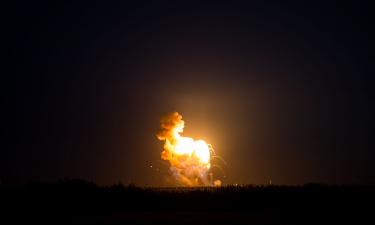Iran response will not be just diplomatic
Iran has confirmed it is offering European representatives and the International Atomic Energy Agency (IAEA) a compromise deal that would see an end to its more questionable nuclear activities. Iran's chief nuclear negotiator, who has just come back from several days of talks in Europe, has confirmed that Iran has offered to suspend its uranium enrichment activities. But he says Iran will decide to suspend these activities only after the meeting of the board of governors of the IAEA. He also has a warning - if the Europeans do not respect their commitments or present, in his words, an illogical or harsh resolution, Iran will go ahead with its response. He says that response will not be just diplomatic. Some hardliners have been calling on the Iranian Government to withdraw from the nuclear Non-Proliferation Treaty - a step which will end all UN inspections of its nuclear installations, informs ABC News. According to Reuters, secretary of State Colin Powell on Tuesday dismissed reports of another Iranian agreement to halt sensitive nuclear activities, saying "we have seen enough" of Tehran's nuclear ambitions to warrant punitive action. Diplomats in Vienna reported Tehran had agreed in principle to freeze production, testing and assembly of centrifuges in an apparent move to ease pressure ahead of a U.N. watchdog meeting next week. But Powell told reporters: "We believe that we have seen enough, that action is warranted and the IAEA (International Atomic Energy Agency) should refer the matter to the (U.N.) Security Council at its upcoming meeting next week." Details of the reported deal were not immediately clear and have yet to be finalized. However, diplomats told Reuters in Vienna that IAEA chief Mohammed ElBaradei negotiated with Tehran over the weekend and the agreement would include halting production, testing and assembly of centrifuges. Iran pledged last year to suspend all enrichment-related activities but has since resumed building centrifuges and last week said it intended to process 37 tons of raw uranium into uranium hexafluoride, the feed material for centrifuges. Disappointed European leaders seem to be torn between pursuing efforts to engage Iran and calls for a harder line over Tehran's nuclear aims, to bring them closer to the US stance. EU foreign ministers, gathered for back-to-work talks in the Netherlands this weekend, did little to disguise their deep concern over Iran, which Washington wants hauled before the UN Security Council. "We agreed upon the need to send out a strong signal to Iran to cooperate with the IAEA," said Dutch Foreign Minister Bernard Bot, whose country holds the EU presidency, referring to the International Atomic Energy Agency (IAEA), publishes the Taipei Times.
Read earlier news stories by PRAVDA.Ru
Subscribe to Pravda.Ru Telegram channel, Facebook, RSS!





